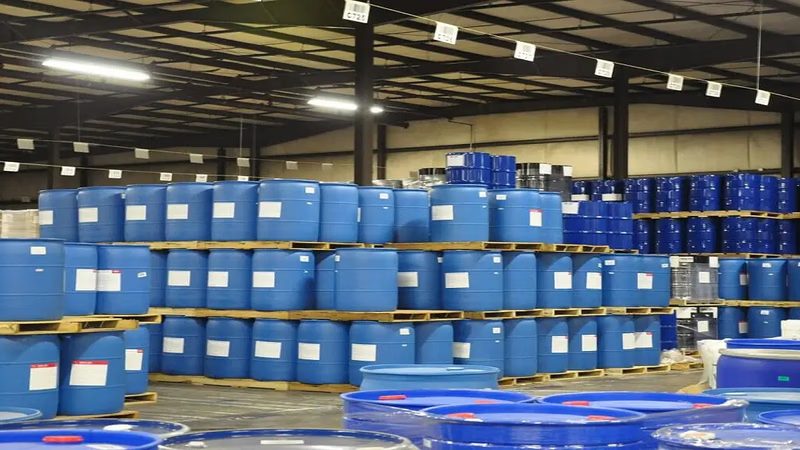
Chemical trade in the Middle East: exporters and importers.
The Middle East is home to large-scale petrochemical complexes that produce a wide range of petrochemicals, including ethylene, propylene, polyethylene, polypropylene, methanol, ammonia, and more. These petrochemicals are exported globally and serve as crucial raw materials for various industries, including plastics, textiles, automotive, construction, and packaging. West Asian countries, such as Saudi Arabia, Qatar, and the United Arab Emirates (UAE), are major exporters of petrochemicals and other chemicals. They supply chemicals to regions like Asia-Pacific, Europe, North America, and Africa. The strategic location of the Middle East provides logistical advantages for trade, including access to major shipping routes and ports.
The Middle East is increasingly focusing on developing downstream industries that utilize the region's chemical products. This includes the establishment of plastic conversion industries, polymer processing facilities, and manufacturing centers for finished products. These initiatives aim to add value to the chemical supply chain and promote local economic growth. Various international chemical companies have invested in the Middle East to take advantage of the region's resources and market potential. Joint ventures and partnerships between local and international companies have resulted in the establishment of large-scale chemical complexes and production facilities.
Countries in the Middle East have specific regulations and standards governing the production, import, and trade of chemicals. Compliance with these regulations, including product quality, safety, and environmental considerations, is essential for chemical trade in the region. The Middle East, with its vast hydrocarbon and mineral resources, is one of the largest players in this large market in Asia and even the world. Depending on the type and volume of the requested material, the purchase of chemicals in the world can be done in different ways, such as a direct purchase from the manufacturer, purchase from reputable importers and sellers active in this field, purchase from the commodity exchange, etc.
Reports from these institutions show that the market value of this market in 2014 with the unprecedented growth of nearly 5.5 trillion dollars was recorded. In 2019, due to strict regulations on the effects of chemicals on human health and restrictions, the production of some harmful chemicals in this market decreased to $ 3.94 trillion, but it is predicted that by the end of 2024, with the increase in trading volume, we will see a growth of 1.8 percent in this market again.
The volume of the global chemical market will grow significantly with an approximate increase in sales in the next two decades, according to experts, the best time to enter the market of buying and selling chemicals and its production and export. The production, sale, and purchase of chemicals is a safe and efficient method with a definite profit.
That is why many companies around the world work in this field. Business activity in this field can be exclusive or public. For example, some companies operate only in the field of industrial materials, but larger companies have a wider and more diverse field of activity. Importing and exporting these materials is an active and profitable trade with a bright future because the whole world is witnessing the widespread use of these materials in various fields.
It can be said that all industries depend on chemical compounds to operate, and their supply is a basic necessity for any country. According to statistics, most of the materials imported to the Middle East in recent years have been from India, China, Turkey, and Germany, with the largest share belonging to China, followed by India, Germany, and Turkey, respectively. Imports and exports from these countries include laboratory chemicals, pharmaceutical grade, agricultural chemicals, and many more.
While the Middle East is a significant chemical exporter, it also has a growing demand for chemicals to support its domestic industries and infrastructure development. Countries in the region import chemicals such as specialty chemicals, fertilizers, pharmaceutical ingredients, and additives from various global suppliers. West Asian countries engage in bilateral and regional trade agreements to facilitate chemical trade. The Gulf Cooperation Council (GCC) countries, including Bahrain, Kuwait, Oman, Qatar, Saudi Arabia, and the UAE, have established economic cooperation and free trade agreements to enhance trade within the region.
-

The Middle East is a pivotal player in the global chemical trade, driven by its extensive petrochemical production capabilities. Major exporters like Saudi Arabia, Qatar, and the UAE supply a variety of chemicals, including ammonia, sulfuric acid, and chlorine, to markets in Asia-Pacific, Europe, North America, and Africa. The region"s strategic location enhances logistical advantages, facilitating access to significant shipping routes. There is a growing focus on developing downstream industries, such as plastic conversion and polymer processing, aimed at adding value to the chemical supply chain. International investments and joint ventures have led to the establishment of large-scale chemical complexes, promoting local economic growth. Compliance with stringent regulations regarding product quality and safety is crucial for successful chemical trade. Despite a decline in market value due to regulatory restrictions, the chemical market is projected to recover, with an expected growth of 1.8% by 2024. The Middle East imports a variety of chemicals, including specialty chemicals and fertilizers, primarily from countries like China, India, Germany, and Turkey.
Bilateral and regional trade agreements, particularly among Gulf Cooperation Council (GCC) countries, are enhancing trade facilitation. The chemical trade landscape in the Middle East is characterized by a blend of local production and international sourcing, making it a dynamic and profitable sector."
-
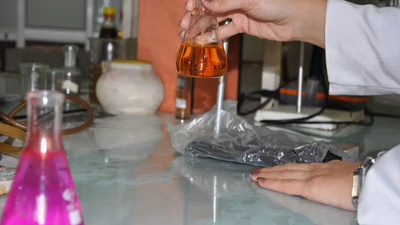
Laboratory chemicals and nanomaterials are essential in scientific research, providing the necessary substances for experimentation and analysis. Laboratory chemicals, including acids, bases, solvents, reagents, and organic and inorganic compounds, are crucial for various laboratory procedures. They are chosen for their purity and compatibility with specific applications. Laboratory nanomaterials, which are synthesized at the nanoscale, exhibit unique properties that enhance their utility across multiple scientific disciplines. These materials are increasingly important in sectors like electronics, medicine, and environmental science. The market for nanomaterials is expected to grow significantly, driven by innovations in nanochemistry and applications in diverse fields. Key applications include the development of nanoparticles, nanocomposites, quantum dots, and nanosensors, each serving specialized functions in technology and healthcare. The synthesis of these materials involves advanced techniques, and their handling requires stringent safety protocols due to potential health and environmental risks. As the demand for laboratory chemicals and nanomaterials rises, understanding their properties and applications becomes critical for industries and research institutions in the Middle East and beyond.
-
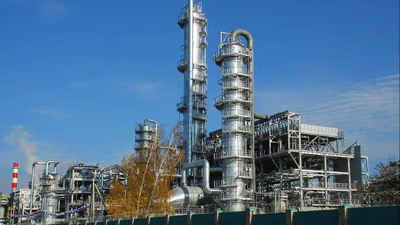
Chemicals are categorized based on various characteristics, including molecular composition, functional properties, supply chain position, and physical states. They can be classified into organic and inorganic chemicals, with organic chemicals containing carbon atoms and being associated with living organisms. Inorganic chemicals, on the other hand, include metals, minerals, acids, and bases. Additionally, chemicals are grouped by their roles in industries, such as solvents, surfactants, and catalysts. The supply chain classification includes raw materials, intermediates, and finished products. Specialty chemicals, which are high-value and customized, play crucial roles in sectors like electronics and healthcare. Agricultural chemicals, including fertilizers and pesticides, enhance crop yield and protect against pests. Pharmaceutical chemicals are essential for drug production, while basic chemicals serve as foundational materials in various industries.
Understanding these classifications aids in grasping market dynamics and the specialized applications of chemicals, which are also assessed for potential hazards to human health and the environment. This comprehensive categorization is vital for businesses engaged in import-export activities, particularly in the Middle East and West Asia, where trade platforms facilitate B2B interactions among verified exporters and importers.
-
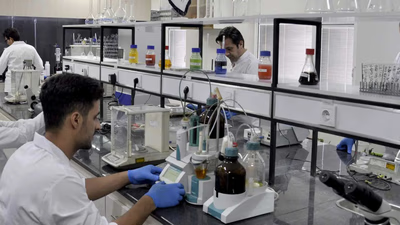
Synthetic chemical compounds have significantly impacted various industries, from pharmaceuticals to agriculture. Their development has enabled the creation of essential products such as antibiotics, polymers, and agrochemicals. In the pharmaceutical sector, synthetic compounds are crucial for producing drugs that treat diseases, including antibiotics and pain relievers. In agriculture, these compounds enhance crop yields and protect plants through pesticides and fertilizers. The textile industry benefits from synthetic dyes and pigments, which provide color to various materials. Surfactants, another category of synthetic compounds, are vital in detergents and personal care products, improving their effectiveness. Additionally, industrial chemicals, including sulfuric acid and solvents, play a key role in manufacturing processes. The versatility of synthetic compounds extends to food preservation, allowing for the creation of flavorful and long-lasting food products. Overall, the synthesis of chemical compounds has revolutionized multiple sectors, offering innovative solutions and enhancing product quality.
-
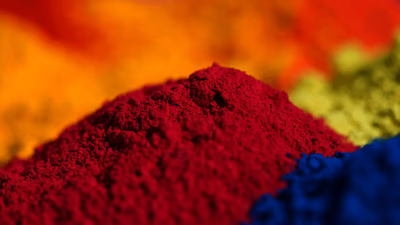
Food and pharmaceutical chemicals are essential for ensuring safety, quality, and efficacy in their respective industries. These chemicals are regulated by bodies like the FDA and EMA to protect consumer health. In food production, additives such as preservatives, antioxidants, and flavor enhancers play a vital role in enhancing flavor, texture, and shelf life. Similarly, in pharmaceuticals, active pharmaceutical ingredients (APIs) are crucial for therapeutic effects, while excipients aid in drug delivery and stability. The use of solvents is also significant in drug manufacturing. Food preservatives inhibit microbial growth and extend shelf life, while processing aids improve efficiency and safety. Additionally, packaging materials made from various chemicals protect food products from contamination and degradation. The development of these chemicals has advanced the pharmaceutical industry, enabling the production of a wide range of drugs. Overall, food and pharmaceutical chemicals are integral to public health, enhancing both food safety and drug efficacy.
-
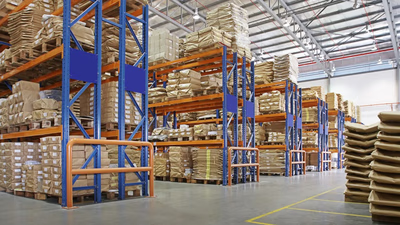
Natural chemical compounds exist in solid, liquid, and gaseous forms, comprising individual elements or complex molecules. Gases like oxygen and nitrogen are prevalent in the atmosphere, while water, a crucial liquid, exhibits unique properties affecting Earth"s geology and biology. Alkaloids, terpenes, flavonoids, and phenolic compounds represent diverse organic chemicals found in plants, each with significant biological activities and applications in pharmaceuticals, essential oils, and food products. Essential oils, proteins, and enzymes play vital roles in various industries, including food processing and medicine. Antibiotics, produced by microorganisms, are essential for treating infections. Minerals, essential for biological processes, are found in rocks and soil. Understanding these natural chemicals is crucial for industries such as agriculture, pharmaceuticals, and environmental science, highlighting their importance in trade and supply chain solutions across the Middle East and West Asia."
-
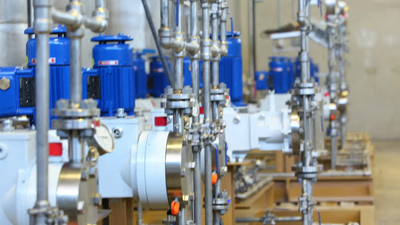
The chemical industry is a critical sector that encompasses the production, manufacturing, and distribution of a wide range of chemicals and chemical products. It supports various industries, including agriculture, healthcare, construction, and automotive, by providing essential materials and intermediates. Key components include industrial acids like sulfuric and hydrochloric acids, alkalies such as sodium hydroxide, and solvents like acetone and ethanol. The industry also produces surfactants, polymers, and specialty chemicals, which are vital for numerous applications. Moreover, the sector is focused on innovation and sustainability, investing in research and development to create eco-friendly alternatives and improve manufacturing processes. The production stages involve raw material sourcing, chemical synthesis, quality control, and distribution, ensuring compliance with safety and regulatory standards. Overall, the chemical industry plays a foundational role in modern economies, driving advancements and supporting a diverse range of applications across multiple sectors.
-
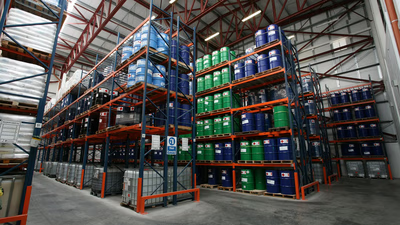
Chemicals are substances with distinct molecular compositions, existing in solid, liquid, gas, or plasma states. They are crucial in various industries, including manufacturing, agriculture, healthcare, and construction. Chemicals serve as raw materials for products like pharmaceuticals, plastics, and textiles, and are essential for agricultural practices as fertilizers and pesticides. The demand for chemicals is driven by economic growth, population increases, and technological advancements. Global trade in chemicals is influenced by international agreements, market competition, and regulatory compliance. Sustainable practices are gaining traction, focusing on reducing environmental impacts through the development of green chemicals. The chemicals market is also affected by price fluctuations and innovations in technology. Understanding the diverse categories of chemicals, such as organic and inorganic, is vital for industries reliant on these substances. While many chemicals are beneficial, some can be hazardous if not handled properly, emphasizing the need for adherence to safety guidelines.








